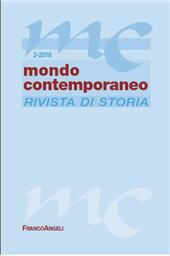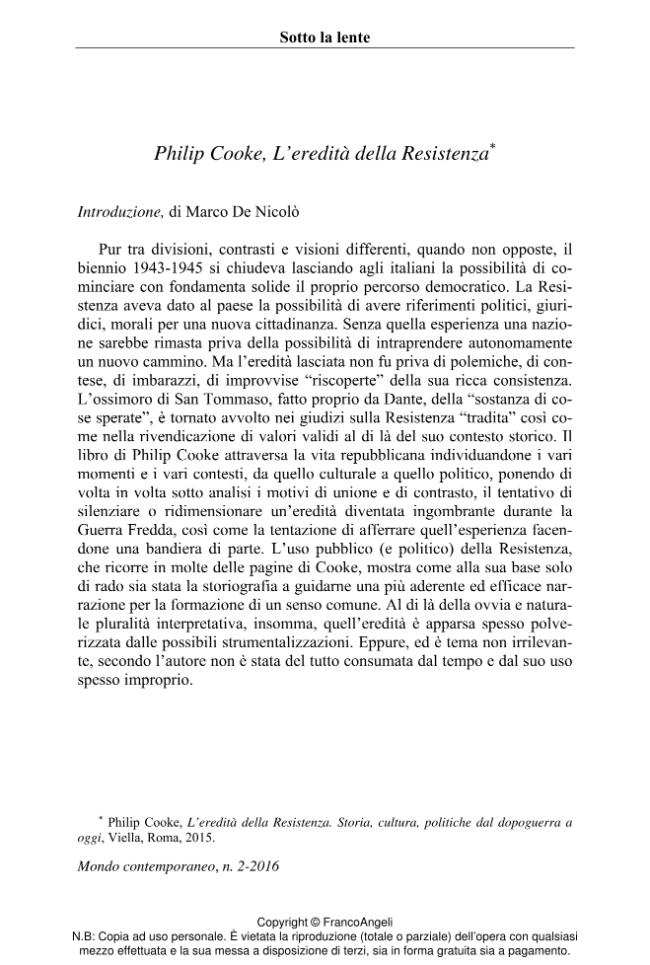Philip Cooke, L'eredità della Resistenza
169-186 p.
The Resistance gave Italy political, juridical and moral thoughts to refer to in order to create a new citizenship. Without that experience an entire nation would probably be unable to embark on its new and autonomous course. The legacy of the Resistance, however, included polemics, disputes and confusion, as well as the sudden "revival" of its fundamental principles. Philip Cooke's book goes through republican life, pointing out some of its most significant phases and considering its various contexts, from the cultural to the political one. He analyses unity and diversity in Italy's Republican history, as well as the reasons why during the Cold War some people took the legacy of the Resistance as burdensome and tried to reduce it, while others tried to turn that experience into a flag for their own party. The way the Resistance has been exploited in public (and political) debate, as explained in different parts of Cooke's book, shows how the historiography of the Resistance has only rarely guided the public.
opinion in a genuine and effective interpretation of that phenomenon. This section includes contributions by Agostino Bistarelli, Marco De Nicolò Filippo Focardi and Philip Cooke. [Publisher's Text].
Forma parte de
Mondo contemporaneo : rivista di storia : 2, 2016-
Artículos del mismo número (disponibles individualmente)
-
Información
Código DOI: 10.3280/MON2016-002006
ISSN: 1972-4853
MATERIAS
KEYWORDS
- Resistenza, Repubblica, 25 aprile, uso pubblico della storia, feste nazionali, identità nazionale
- Resistance, Republic, April 25th, public exploitation of history, national celebrations, national identity



